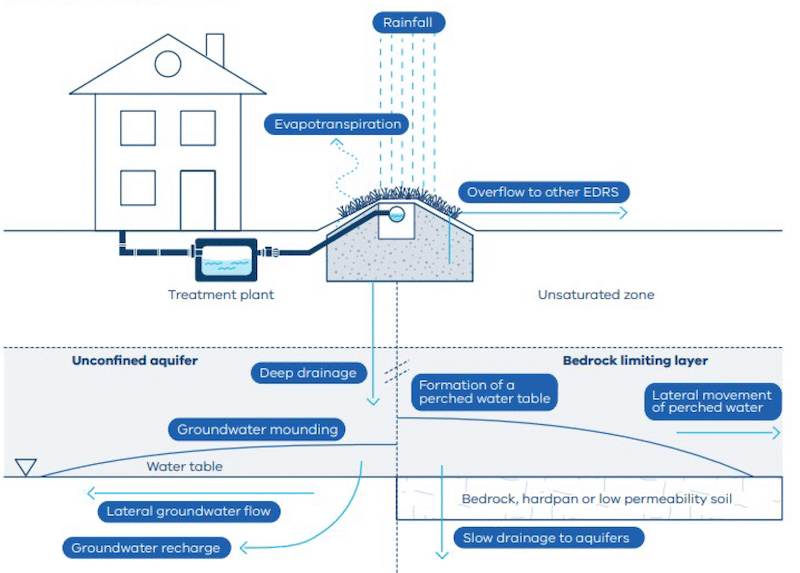Commercial Land Capability Assessments: Ensuring Sustainable Development with Victorian Septic Land
In the realm of land development, whether it be for residential, commercial, or industrial purposes, understanding the capabilities of the land you are working with is crucial for a successful project. One of the most vital assessments in ensuring that your development aligns with environmental regulations, safety standards, and infrastructure requirements is the Commercial Land Capability Assessment (LCA).
For businesses and developers in Victoria, Victorian Septic Land Capability Assessments provides detailed and professional services for both Commercial Land Capability Assessments and Septic Land Capability Assessments, ensuring that your project is sustainable, compliant with local regulations, and tailored to your land’s unique characteristics.
In this blog post, we’ll delve into why these assessments are essential, what they involve, and how Victorian Septic Land Capability Assessments can help streamline your development project.

What is a Land Capability Assessment?
A Land Capability Assessment (LCA) is a scientific analysis of a piece of land's ability to support different types of land uses while maintaining environmental sustainability. It evaluates soil, topography, vegetation, drainage, and other land characteristics to determine its suitability for particular development projects, especially when considering septic systems and wastewater management.
For commercial developments, these assessments are vital to ensure that the land can accommodate the scale and type of activity you intend to carry out. Whether you’re planning a shopping center, office building, or industrial site, understanding the land’s capability can help avoid future complications, such as drainage issues, inadequate wastewater systems, and more.
Why Do You Need a Commercial Land Capability Assessment?
When undertaking any kind of commercial development, it is critical to ensure that your land can support the necessary infrastructure and operations. Below are several reasons why an LCA is indispensable for commercial development projects:
-
Compliance with Regulations
Local councils and regulatory bodies require developers to conduct LCAs before approving any development, especially for those involving septic systems or waste management. The assessment ensures that the land adheres to relevant environmental standards and planning permits. -
Sustainable Wastewater Management
One of the most significant considerations in an LCA is wastewater management, especially for commercial properties that require large-scale septic systems. Assessments help determine the land's ability to handle wastewater disposal and identify the most suitable system. -
Preventing Environmental Damage
Developing land without considering its capability can lead to environmental degradation. Overuse of land, improper drainage, and waste mismanagement can lead to soil erosion, water pollution, and other long-term environmental issues. LCAs assess these risks before development commences. -
Land Suitability for Intended Use
Whether the land is zoned for agriculture, commercial, or industrial use, understanding its natural characteristics helps in determining whether the land is suitable for the intended commercial purpose. These assessments evaluate soil health, water retention capacity, drainage, and overall stability. -
Avoid Costly Future Problems
Undertaking a commercial development without proper land capability analysis can lead to unforeseen complications, resulting in costly delays or the need for costly remediation efforts. LCAs reduce the risk of such issues arising, ensuring smoother project timelines.
What Does a Commercial Land Capability Assessment Involve?
A thorough Commercial Land Capability Assessment is typically broken down into several key steps:
-
Soil Testing and Analysis
The first step involves testing the soil for various physical and chemical properties. Soil composition, texture, permeability, and drainage capacity are all factors that impact land capability. Soil tests also identify contaminants or hazardous materials that may need to be addressed before development. -
Topographic Survey
Understanding the lay of the land is essential. Topographic surveys assess the land’s contours, slopes, and elevation differences. This helps identify areas prone to flooding or poor drainage. -
Vegetation Assessment
A vegetation assessment is crucial for understanding the type of plant life present on the land. Some commercial projects may need to consider ecological impacts, especially when the development involves clearing vegetation or modifying ecosystems. -
Water Management and Drainage Assessment
One of the most critical aspects of an LCA is assessing the water management capability of the land. This includes both surface water (such as stormwater) and groundwater. The land’s drainage system and ability to absorb water are evaluated to prevent flooding or soil erosion issues. -
Septic Land Capability Assessment
For commercial developments not connected to the municipal sewer system, septic systems are often necessary. A Septic Land Capability Assessment evaluates the land’s suitability for septic system installation, ensuring that wastewater can be managed effectively without causing contamination or environmental harm. This includes assessing soil percolation rates, depth to groundwater, and proximity to sensitive environmental areas such as rivers or wetlands. -
Environmental Impact Assessment
Often, a commercial land capability assessment will include an environmental impact evaluation to ensure that the project will not disrupt the local ecosystem. This might involve examining the presence of endangered species, wetlands, or other ecologically sensitive areas.
How Victorian Septic Land Capability Assessments Can Help
When it comes to both commercial land capability assessments and septic land capability assessments in Victoria, Victorian Septic Land Capability Assessments has a strong reputation for providing expert and reliable services. Their team of experienced professionals specializes in land analysis and offers tailored solutions for developers and landowners, ensuring that every project complies with relevant guidelines and regulations.
Here’s how they can help you:
-
Expert Guidance and Advice
Victorian Septic Land Capability Assessments offer expert consultation at every stage of your project. They help you understand the requirements, guide you through the regulatory landscape, and offer practical solutions for your land development. -
Comprehensive Testing
They carry out detailed soil and land tests using advanced techniques to provide an accurate picture of your land's capabilities. The team ensures that every aspect, from wastewater management to soil health, is thoroughly assessed. -
Septic System Design and Evaluation
If your commercial development requires a septic system, Victorian Septic Land Capability Assessments is well-versed in designing and evaluating septic systems based on the findings from the LCA. This ensures that your development remains compliant with environmental standards while effectively managing waste. -
Timely Reporting and Documentation
With strict timelines in place for development approvals, having timely reports and accurate documentation is crucial. Victorian Septic Land Capability Assessments delivers clear, concise, and professional reports that can be submitted to regulatory authorities to support your development application. -
Peace of Mind
The team at Victorian Septic Land Capability Assessments works hard to ensure that your land is capable of supporting your development plans, giving you peace of mind that your project will proceed without complications. Their thorough assessments help minimize future risks, save costs, and streamline the approval process.
Do You Need a Land Capability Assessment?
It’s natural to ask, “Do I really need a Land Capability Assessment?” The answer is a resounding yes. Not only is it often a regulatory requirement, but it also saves you from future headaches. By having an LCA or Septic LCA conducted before you proceed with your development project, you can avoid many costly mistakes, ensure compliance with regulations, and most importantly, protect the environment.
For more information, visit Victorian Septic Land Capability Assessments and explore the wealth of resources available to ensure that your development project starts on the right foot.

Conclusion
Whether you are embarking on a small commercial venture or a large-scale development project, a Commercial Land Capability Assessment is essential for the long-term success of your development. Through a detailed analysis of the land’s potential and limitations, this assessment helps developers make informed decisions that lead to sustainable, environmentally responsible projects.
For projects that require septic systems, a Septic Land Capability Assessment is equally critical. In both cases, Victorian Septic Land Capability Assessments offers unmatched expertise, thorough evaluations, and tailored recommendations to ensure your project complies with all necessary environmental standards.
If you’re ready to begin your land development project, don’t overlook the importance of a commercial land capability assessment. With the help of Victorian Septic Land Capability Assessments, you can be confident that your project is set up for success from the very beginning.
Comments
Post a Comment